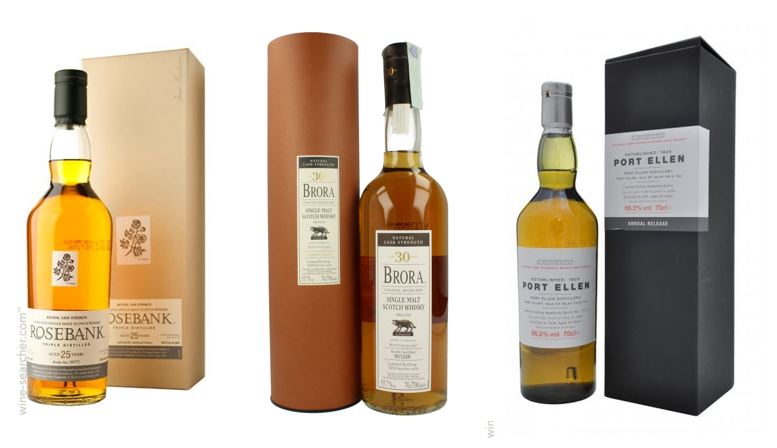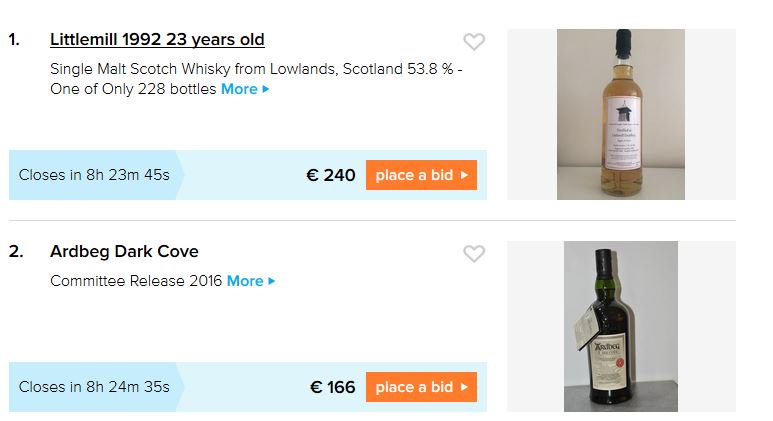
You’ve recently developed a taste for whisky (Yay! Welcome!) but you don’t have a clue where/how to start?
Hey, don’t freak out and let me guide you!


First of all, why would people collect whisky, I mean, I thought it was meant to be drunk?
There are plenty of very good reasons to collect whisky. Here are a few of those:
First of all, if you appreciate the amber nectar, chances are that you would appreciate having a nice selection on hand should you be overcome with the desire for a dram! On your own, with your partner or with friends, just to relax or celebrate your boyfriend’s new job, your brother’s newborn arrival or the beginning of the sales on Amazon (We all have our priorities in life… ) – I believe there is a whisky for every occasion and hence for me, as a whisky amateur, having a choice is indispensable, I mean, it’s crucial. I’m not necessarily into the “accumulation” thing and simply having a lot of bottles isn’t my end goal, I’m much more interested in being able to choose from a finely balanced selection: single malts, blends, single grains, bourbons, world whiskies… diversity in flavour profiles is what I’m after, so that I can go for a peaty beast or a rich sherry bomb whenever I feel like it!
For some of us, the thrill of the chase is a strong motivator to start a collection. Every collector knows the feeling all well and goes chasing auction sites for that one bottle that he still needs to complete his collection. Care must be taken so that it does not become addictive though 😉

Collecting, for many, remains a hobby, sure… but it can also be an investment for some. In case you missed the information, whisky has largely surpassed other popular investments such as wine or gold. The ‘Rare Whisky Apex 100’, the reference index for Scotch whisky, has seen an increase in value of 14% in 2015, while the index for gold dropped 10% in the same period.
Booming in Europe and on a global scale, the whisky auctions bring in un-precedented revenues, “record breaking” stories flooding all over the press almost every 2 months. In the UK alone, more than €10 millions in transactions were registered in 2015, an increase of 25% compared to 2014.
Last but not least, let’s not forget the eye candy. Distilleries clearly understand that the design of their bottles and packaging are becoming increasingly important, turning a consumer product into a real work of art, hence teasing the collectors, case closed.
I am aware many whisky purists still have troubles with the notion of collecting whisky in order to make a profit, arguing that whisky was made for drinking. They are entirely right. But one does not necessarily exclude the other! Does ‘two birds with one stone’ ring a bell? One can always buy two bottles (if possible, of course): one to enjoy and one to keep!

What bottles are ‘collectible’? Is the price always a trustworthy indicator?
There are two approaches to this issue. If you collect for consumption (and how right you are!), start by buying what you like and as you go, refine your choices as your palate develops. Venture to new flavors. This discovery journey will help educate your taste buds.
If you collect as an investment, it is important to remember that scarcity makes the value. This is a golden rule to remember when choosing bottles in which to invest (I wrote this whisky investment guide last year if you need more advices on the topic!).
It is also important to remember that, as with any material investment, trends evolve and change: no investment is risk-free. For instance, an official distillery release is considered of higher added value than an independent bottling, even if the nectar is the same: same distillery, same year of distillation/bottling…

Bottles from closed distilleries, aka ‘silent distilleries’, are particularly popular among investors, such as those from Port Ellen, Rosebank and Hanyu to name but a few. Special editions or single casks, which are often limited to a few hundred bottles, are also in very high demand (think about those Feis Ile editions for instance, that’s not a surprise people are queuing hours before the opening of certain distilleries during their open day – they know those bottles are gold and if they want their share, they’d better be early – or wealthy) – Those bottles may be priced under than £100 when launched, if they are very limited and sought-after by collectors, there are good chances you’ll find them triple their initial price on auction websites a few weeks later (even days for some expressions).
While the price often reflects the collectibility and scarcity of a whisky, one should not always rely on this. I cannot stress this enough: ask advice around you, whether from a connoisseur you trust, on collectors Facebook groups/forums or at your local spirit shop.

Where can you find ‘collectible’ bottles?
There are two main solutions. First, you can of course check with your favourite shop owner or a trusted dealer.
It probably doesn’t come as a surprise, auction websites are still the best place to find those old/rare/collectible nectars and make a good deal in my opinion, for both buyer and seller (even famous whisky retailers buy some of their stock at auctions… Think about it). Here’s a bit of self promo (blabla you’re not an independent blogger blabla, I can hear you from here, oh well… ): on auction platform Catawiki for instance, around 300 lots go for sale every week, including many rarities that would make your collector self go 😮 or even \o/ if you win the auction.

BEWARE not to buy a conterfeit, always ask for an expert eye before buying an old/rare whisky and avoid any disappointment!

How to store them?
Unlike wine, bottled whisky no longer ages. But it doesn’t mean that the liquid will remain the same if you open the bottle in 50 years from now, especially if it hasn’t been stored in good conditions.
To avoid oxidation, try not to open and close the bottle repeatedly and store it at room temperature (avoiding important temperature variations). Try your best to hide it from direct sunlight. Unlike wine, that is stored lying, keep your whisky bottles vertical in order to avoid contact between the liquid and the cork, as it may react negatively due to the high alcohol content.

You’ll also want to keep your bottles intact as long as possible, don’t neglect the phenomenon of long-term evaporation. The best way to protect your whisky is to wrap the bottle cap with an additional protective layer, for example with Parafilm (used in laboratories).
As far as open bottles are concerned, the average lifetime is about one year after opening if they are stored in the conditions explained above. But beware, if you collect for investment purposes, you must realize that once opened, the value of your bottle drastically decreases and many auction houses will refuse to sell them.

Protect your treasure !
A whisky collection can quickly reach great value and attract the interest of malicious people *insert devil emoji here*. To avoid seeing your collection go up in smoke, do not hesitate to install a home protection system. never too careful! Prevention is better than cure!
It is equally important to contact your home insurance agent to check if you are insured against breakage or theft. If that is not the case, depending on the value of your collection, inquire to have it insured!


Translation Credits: Mark Dermul



